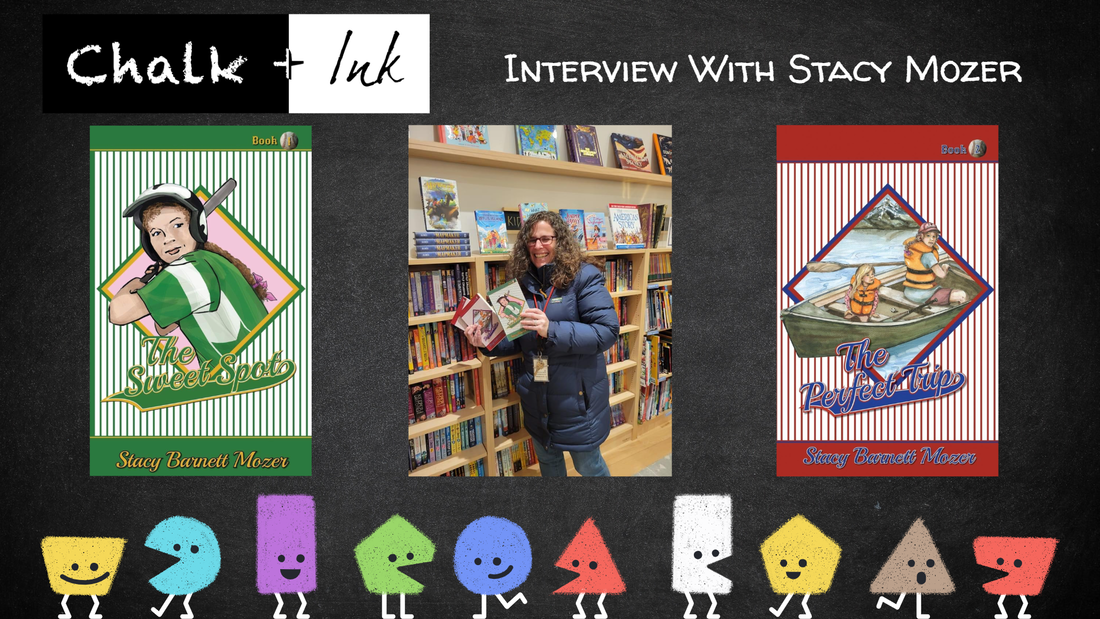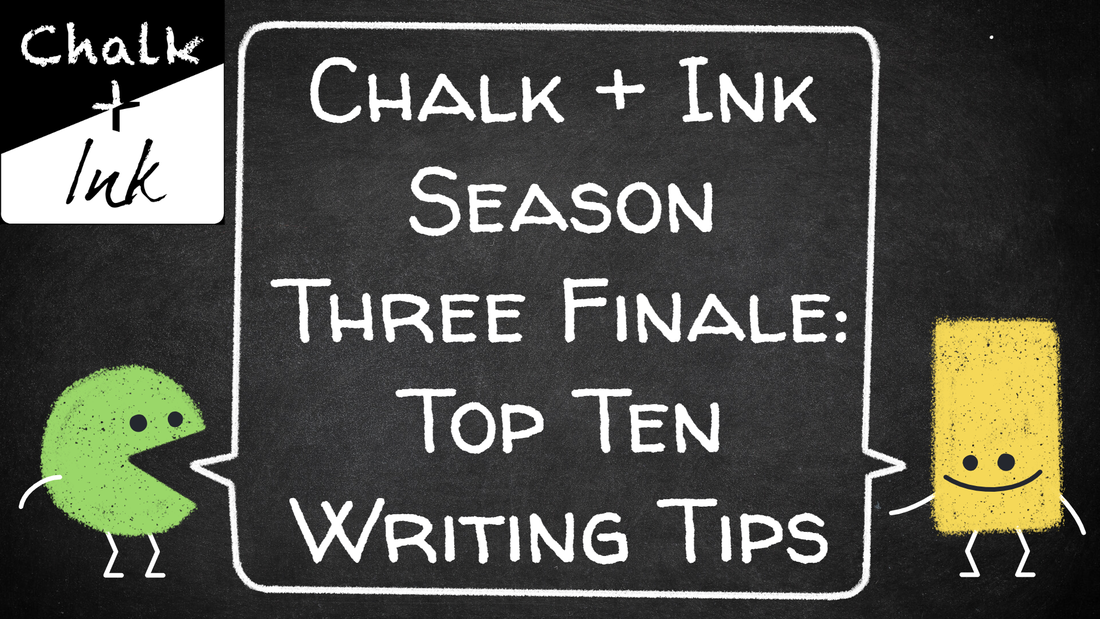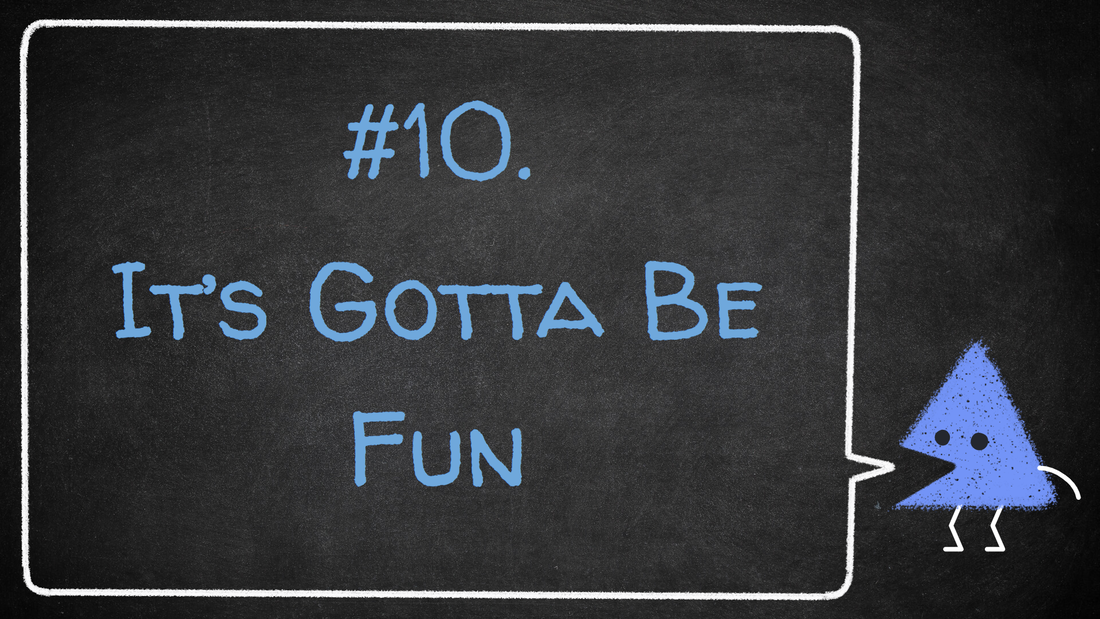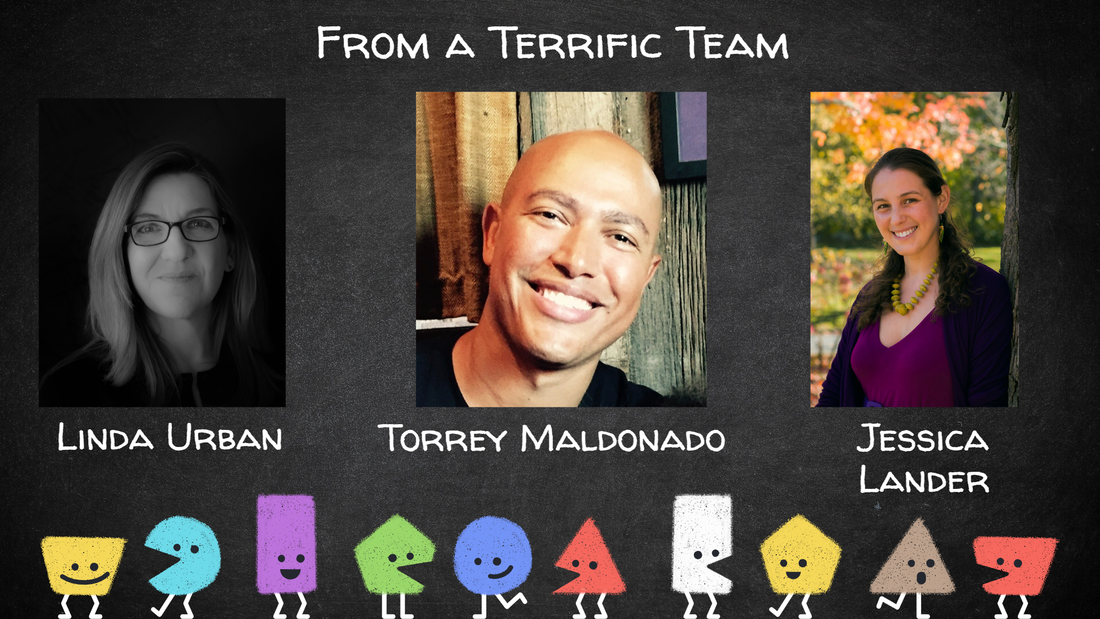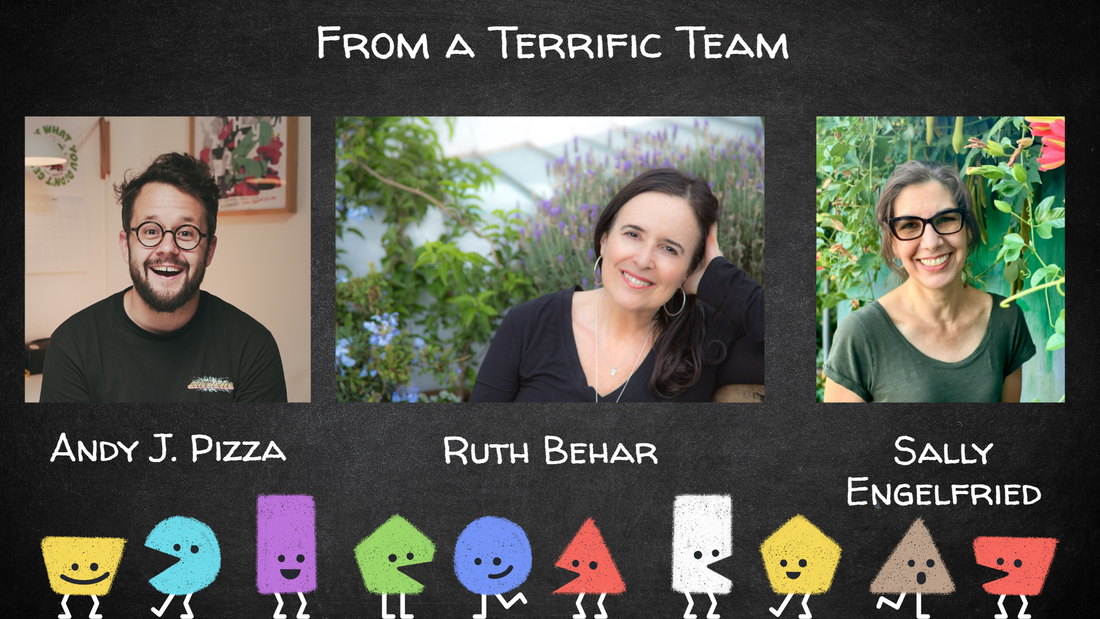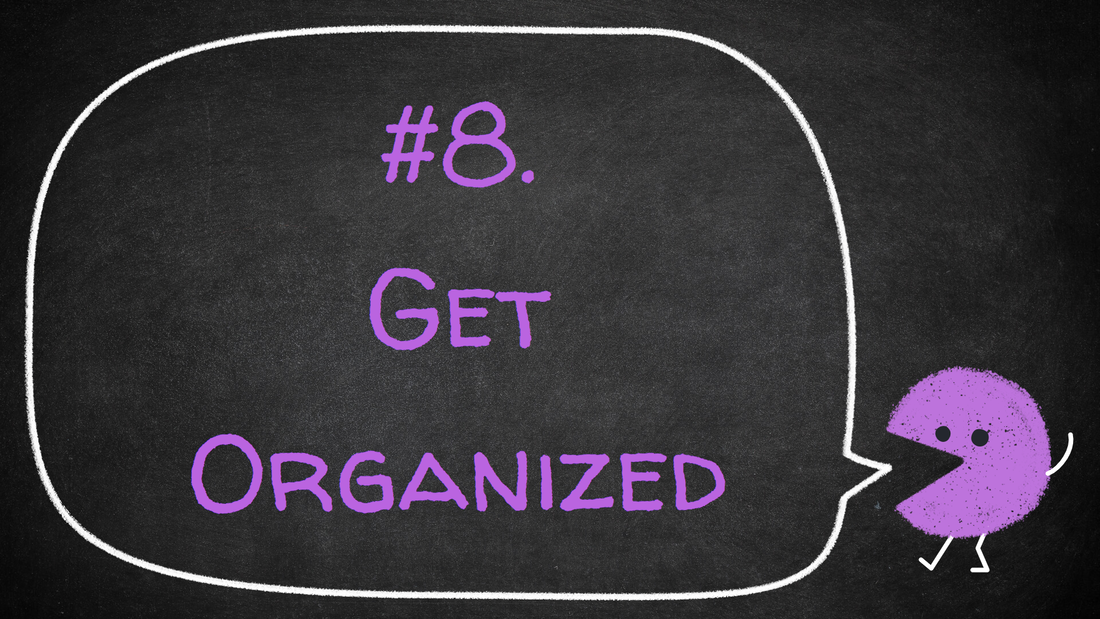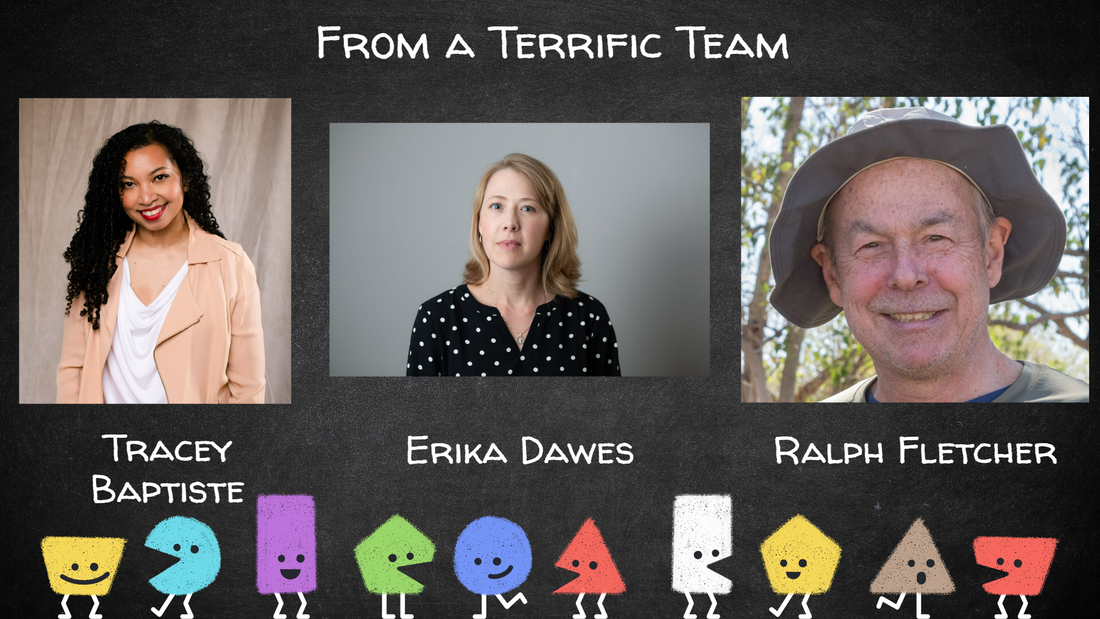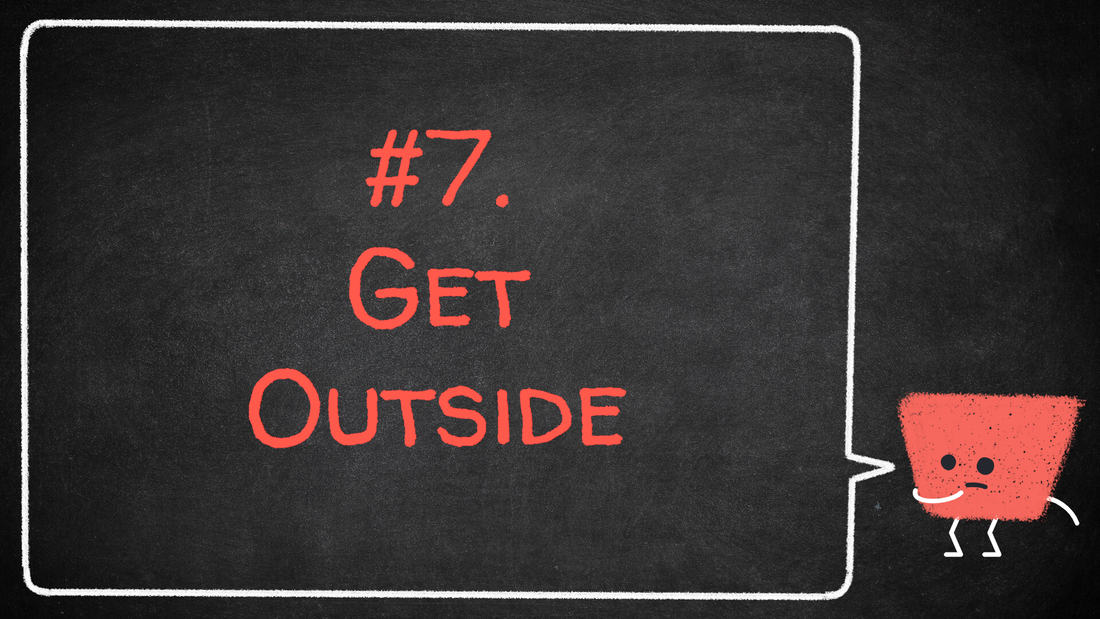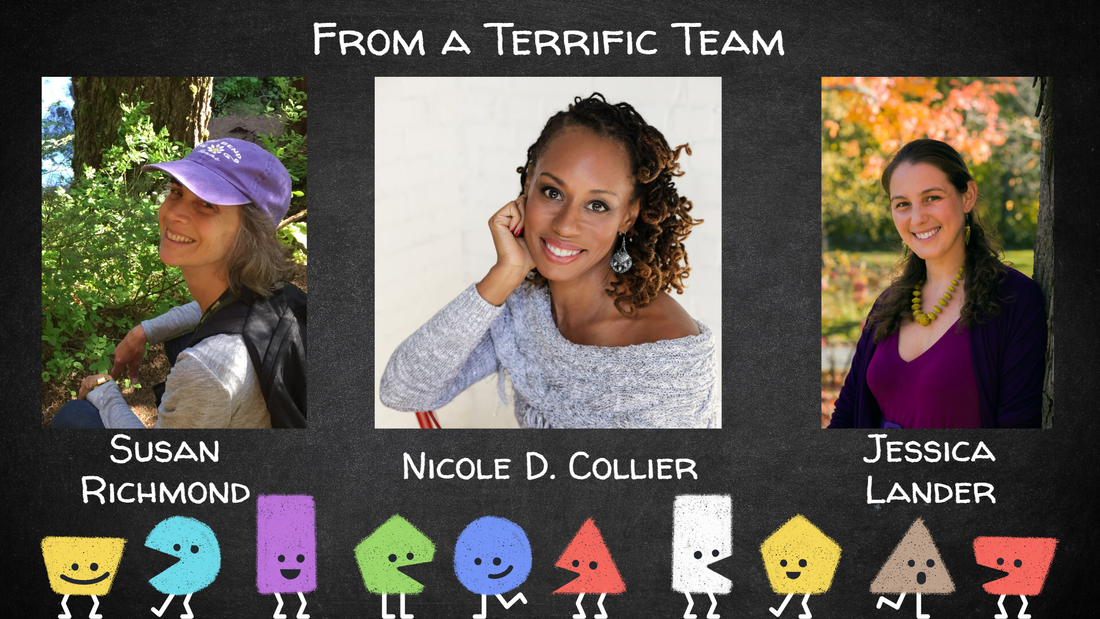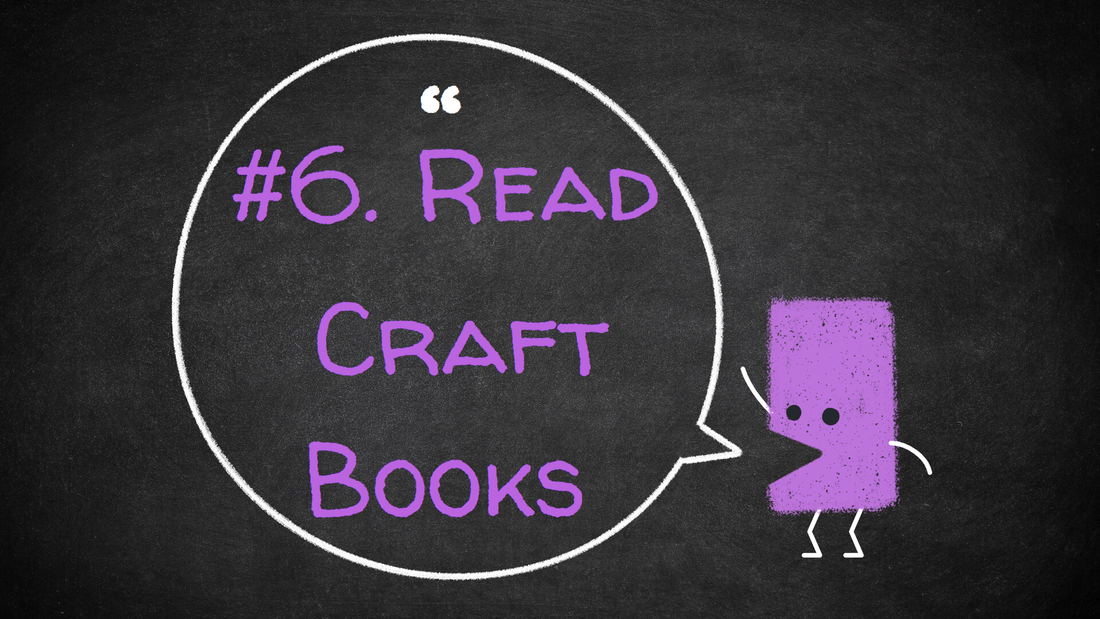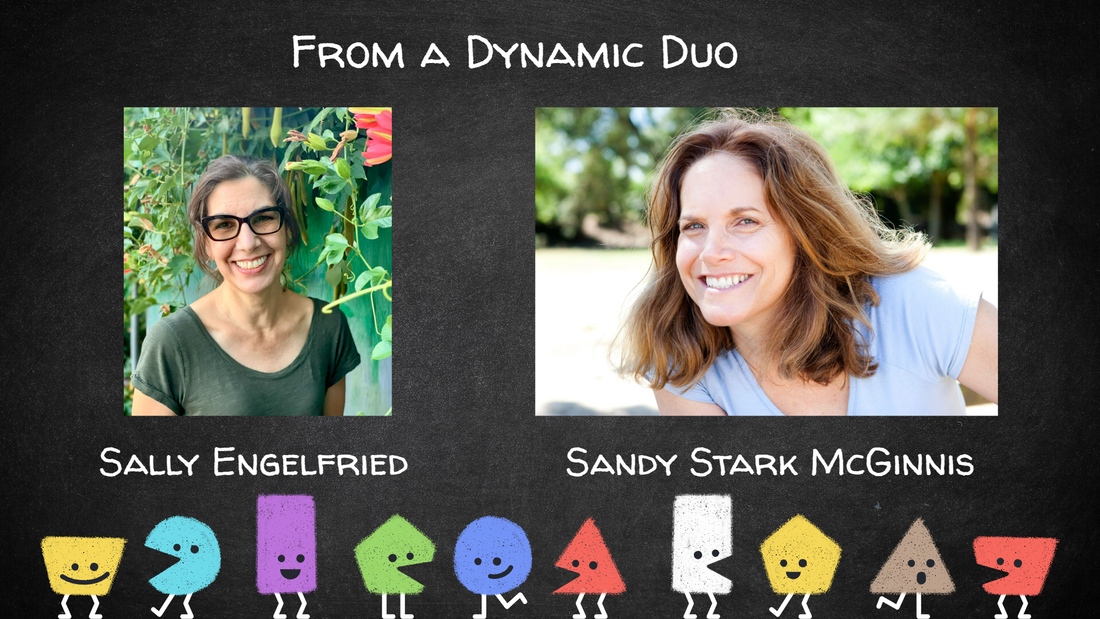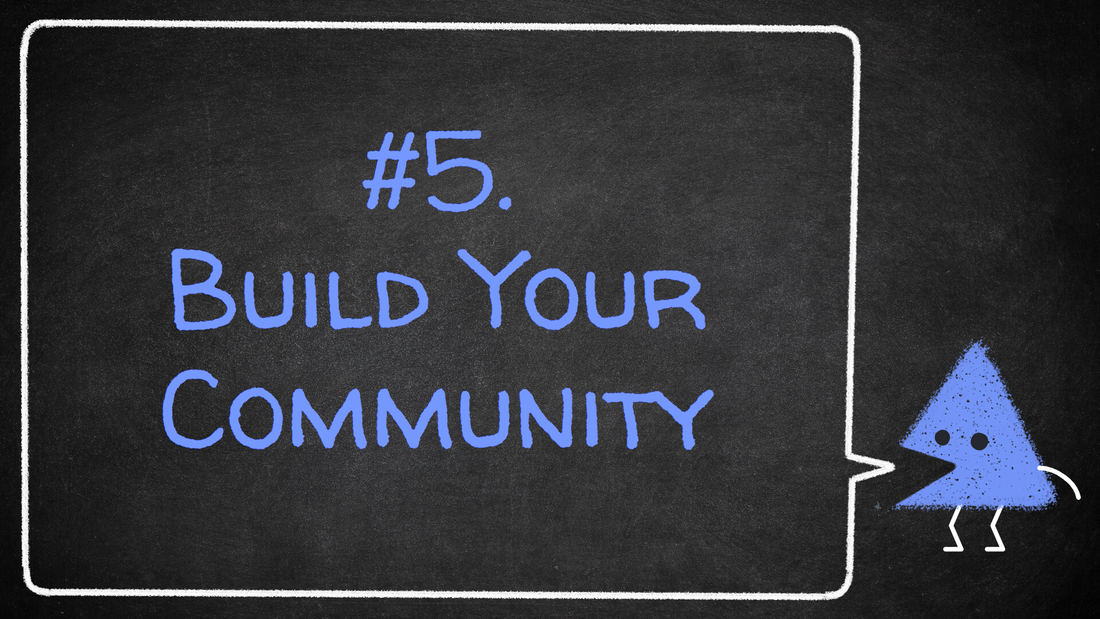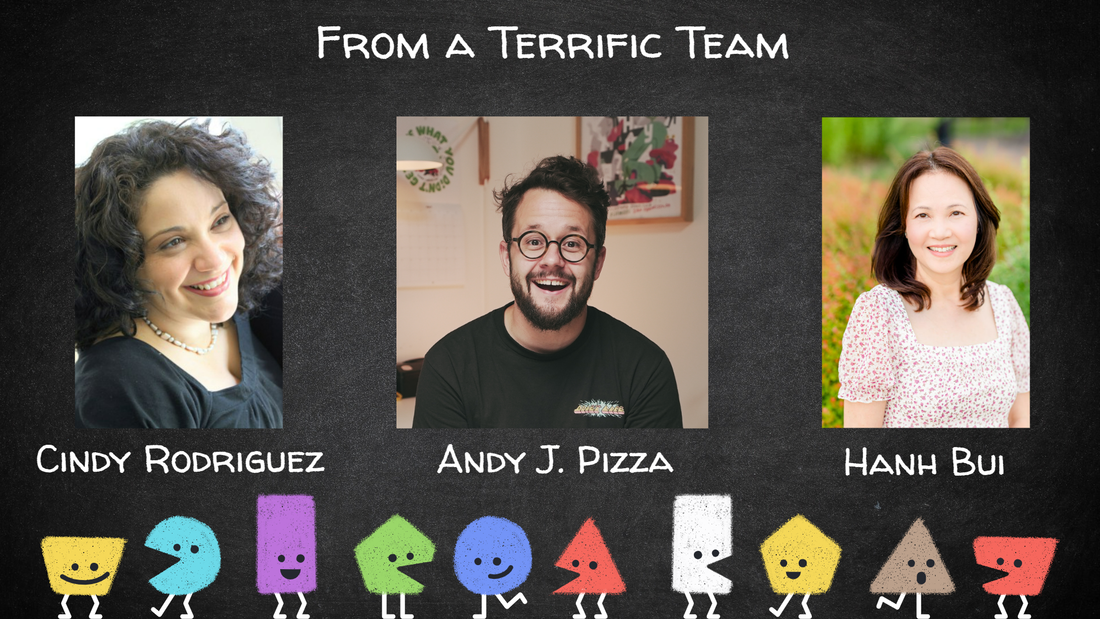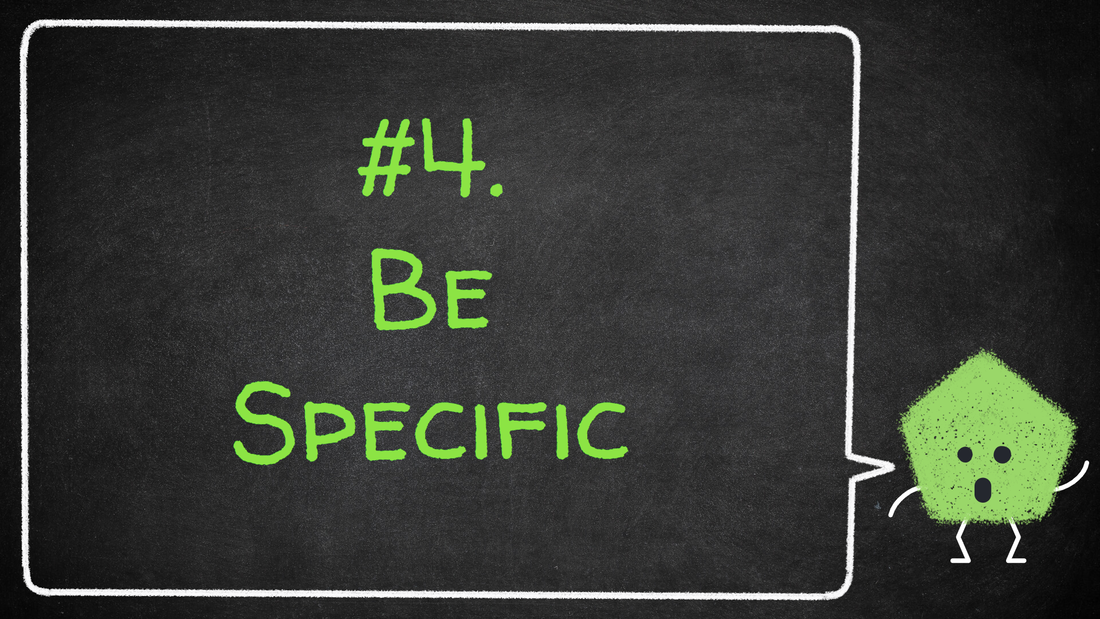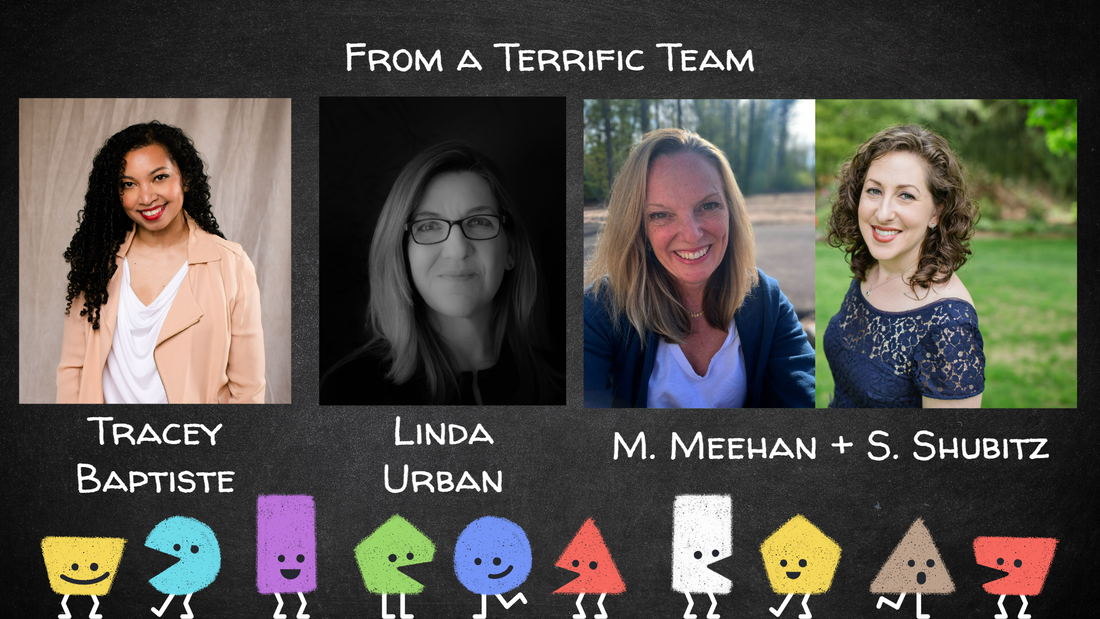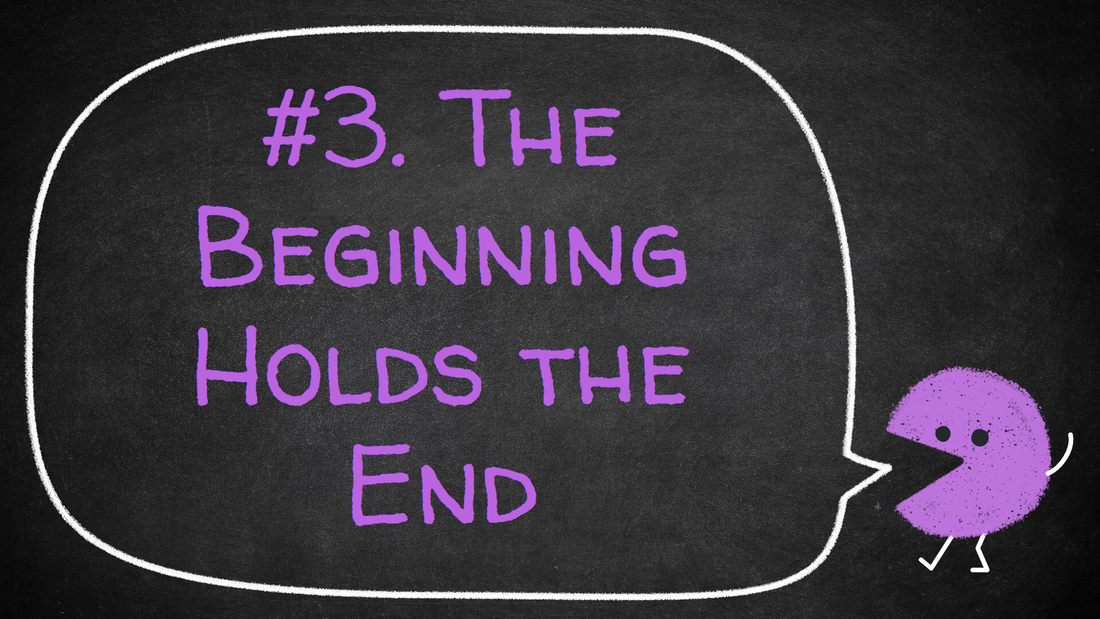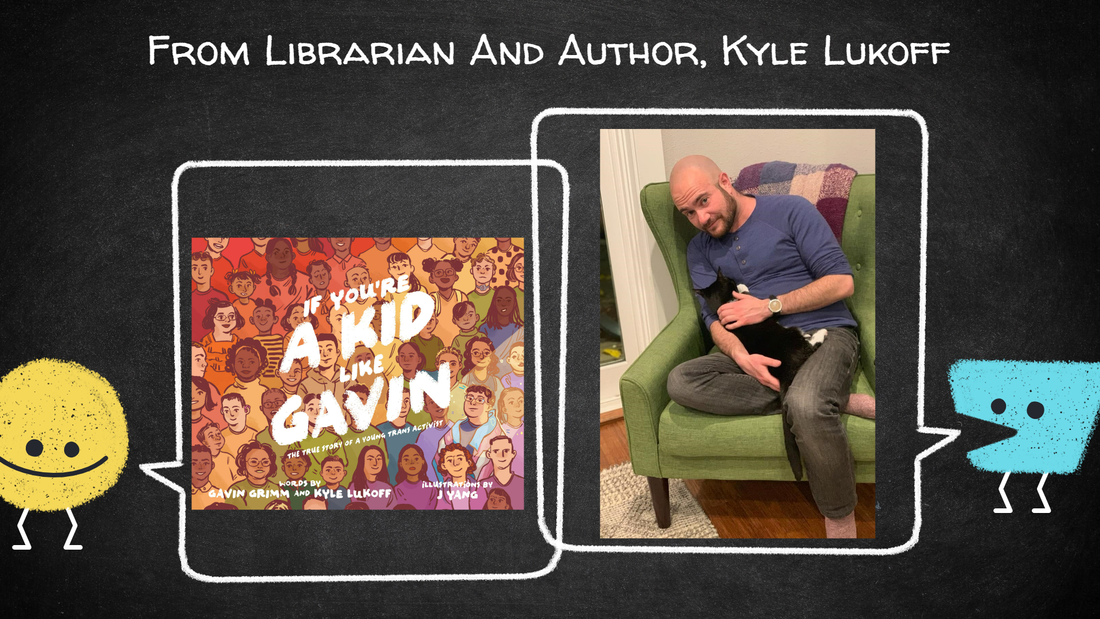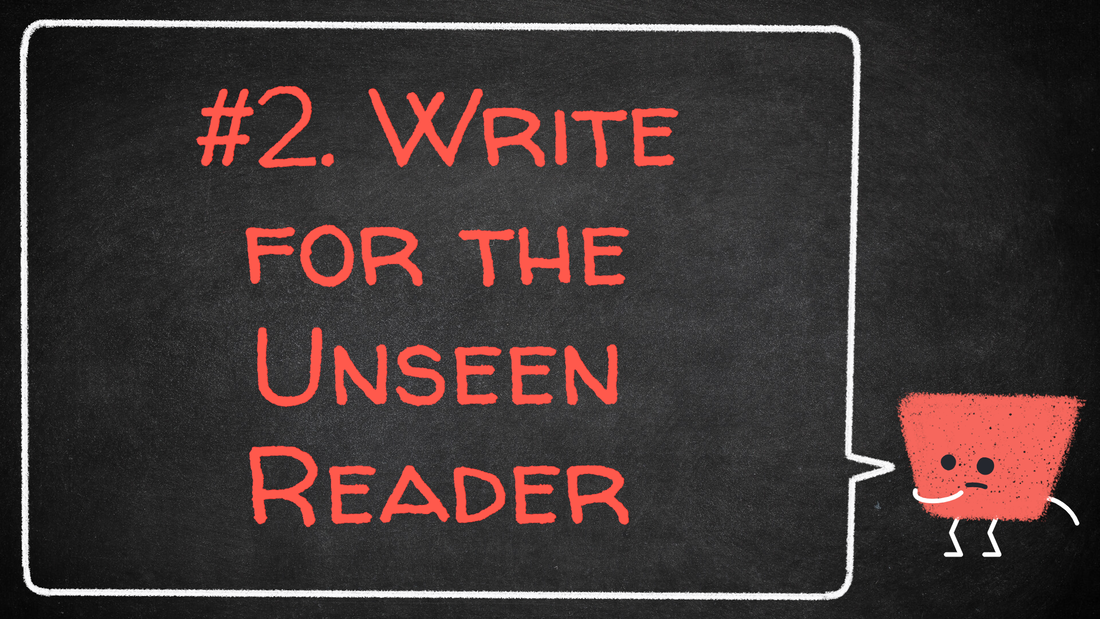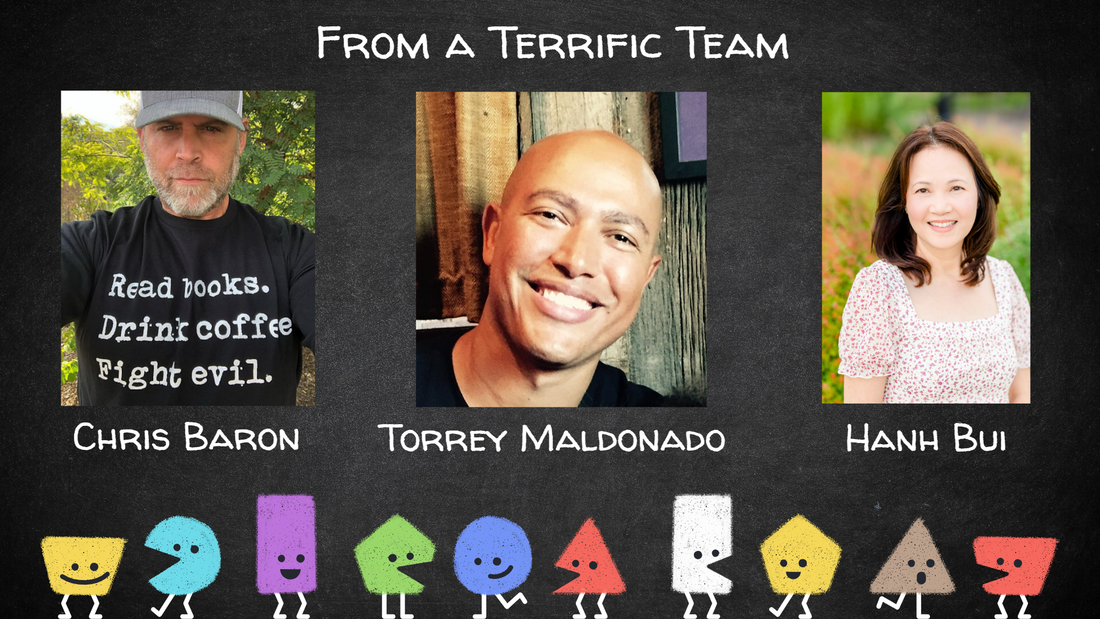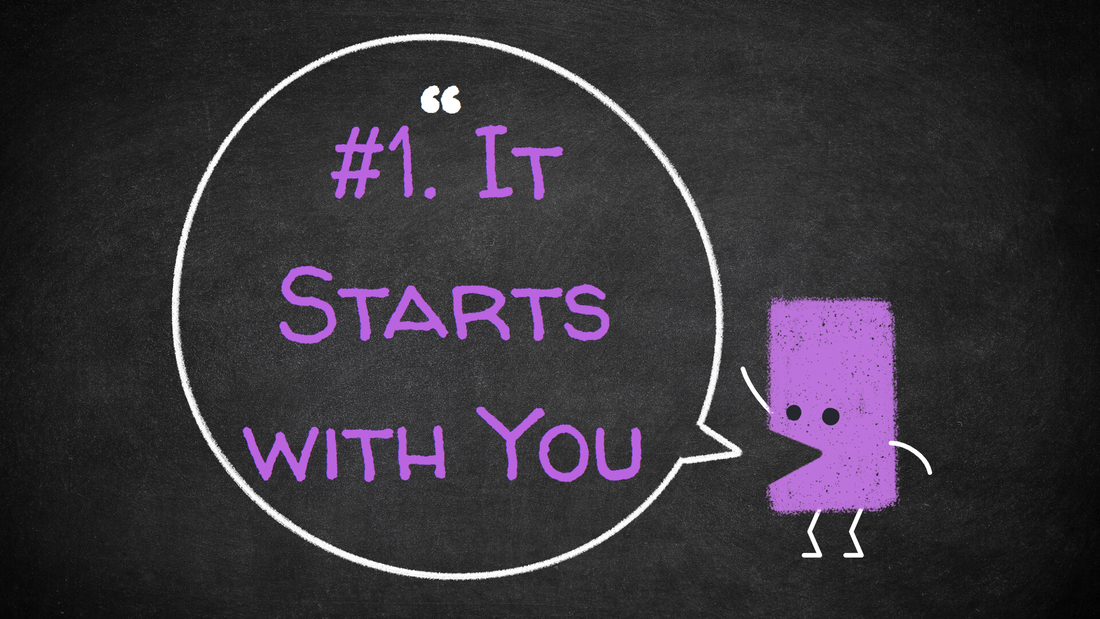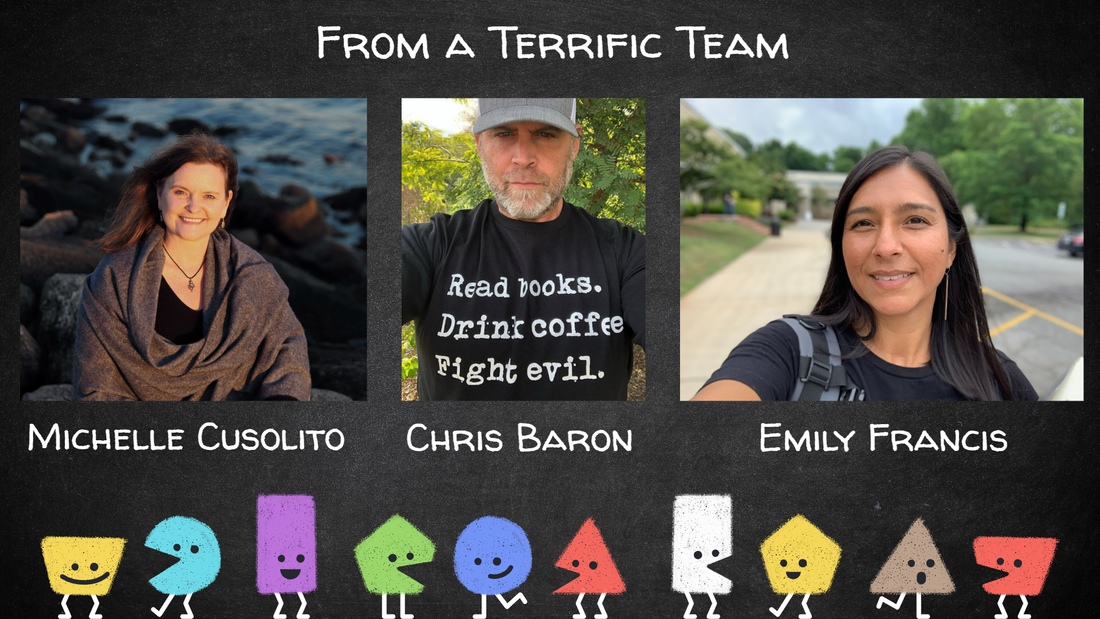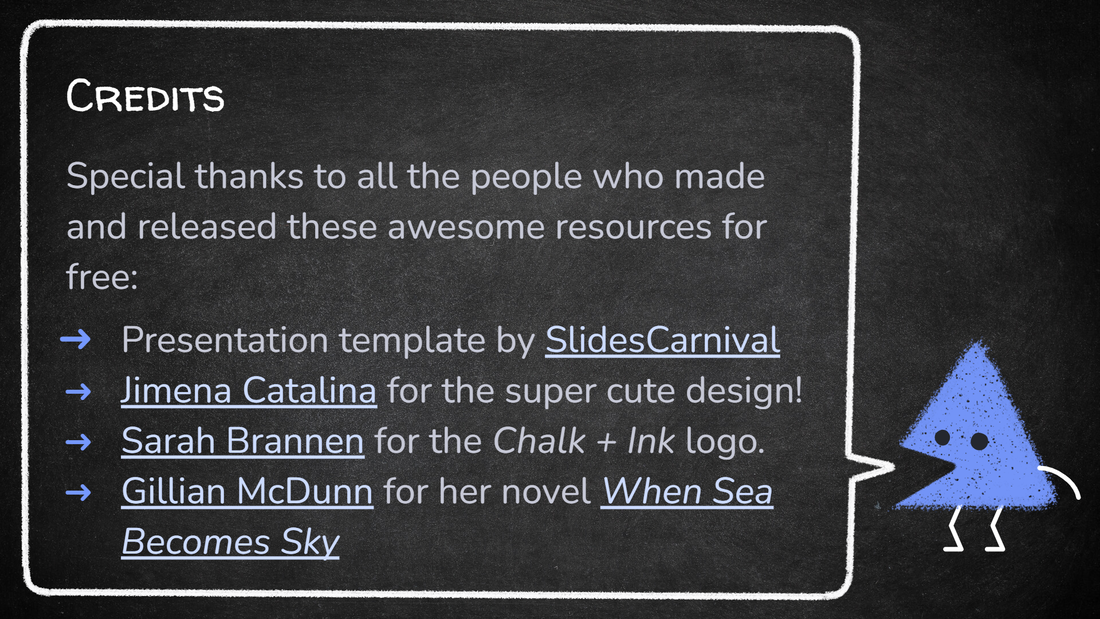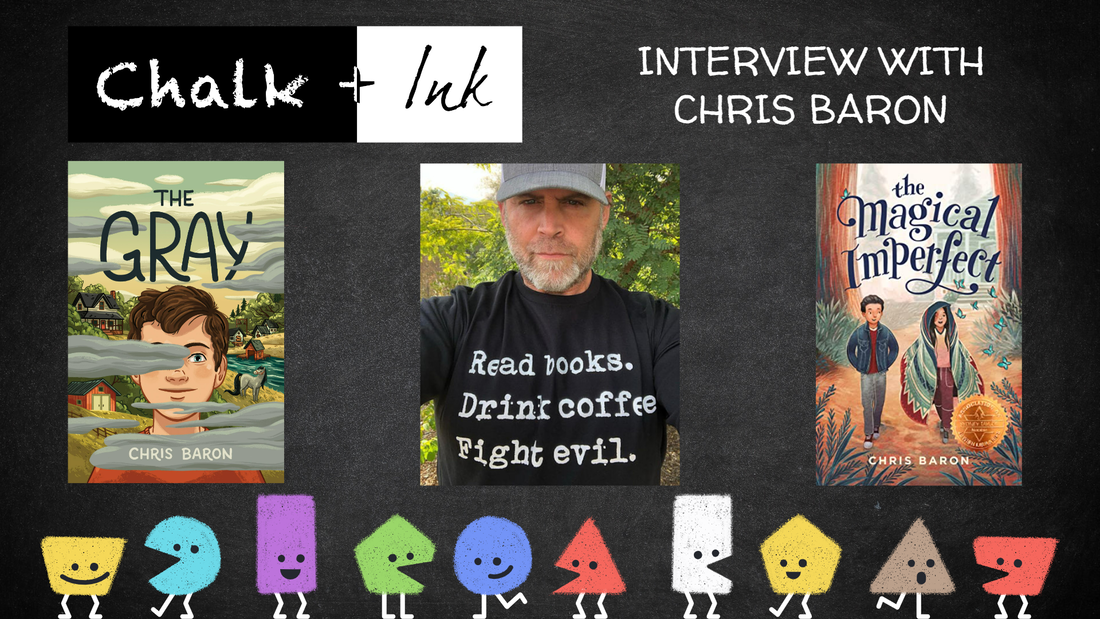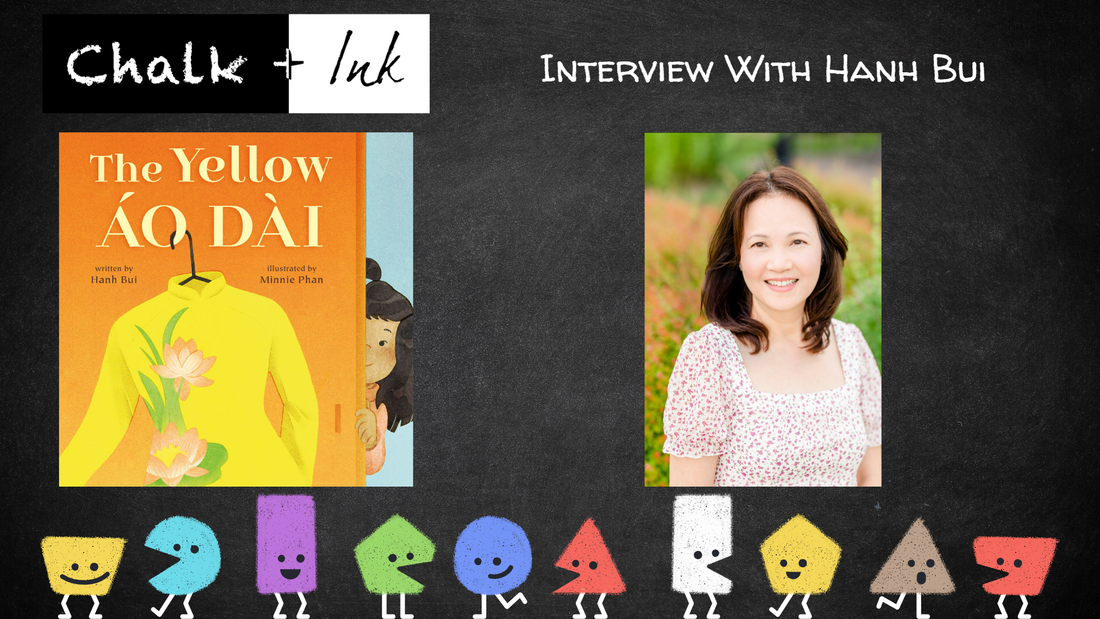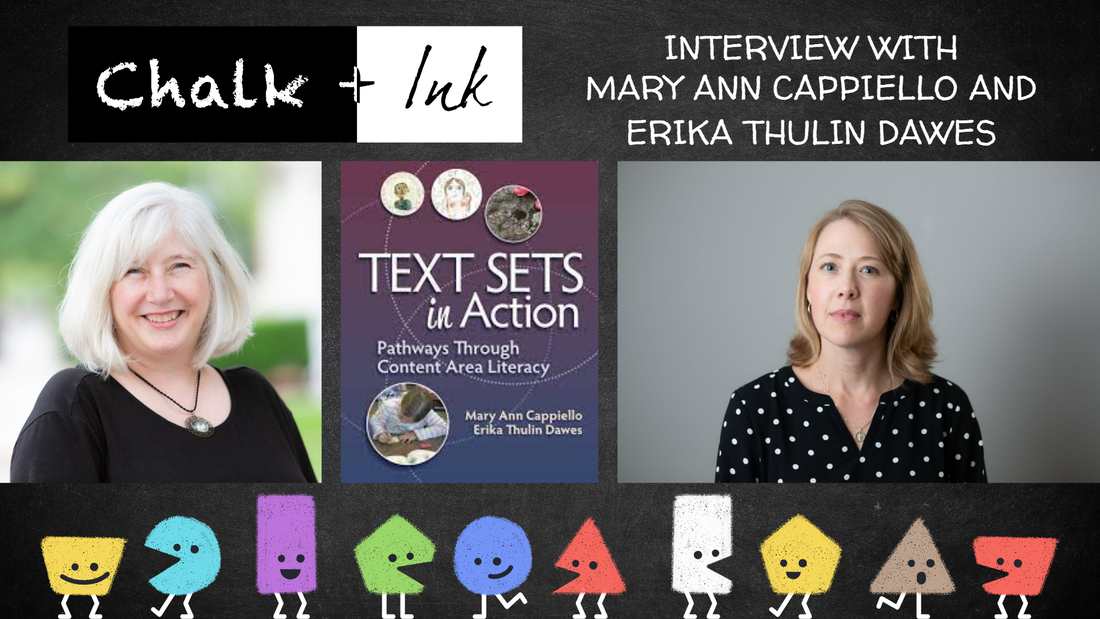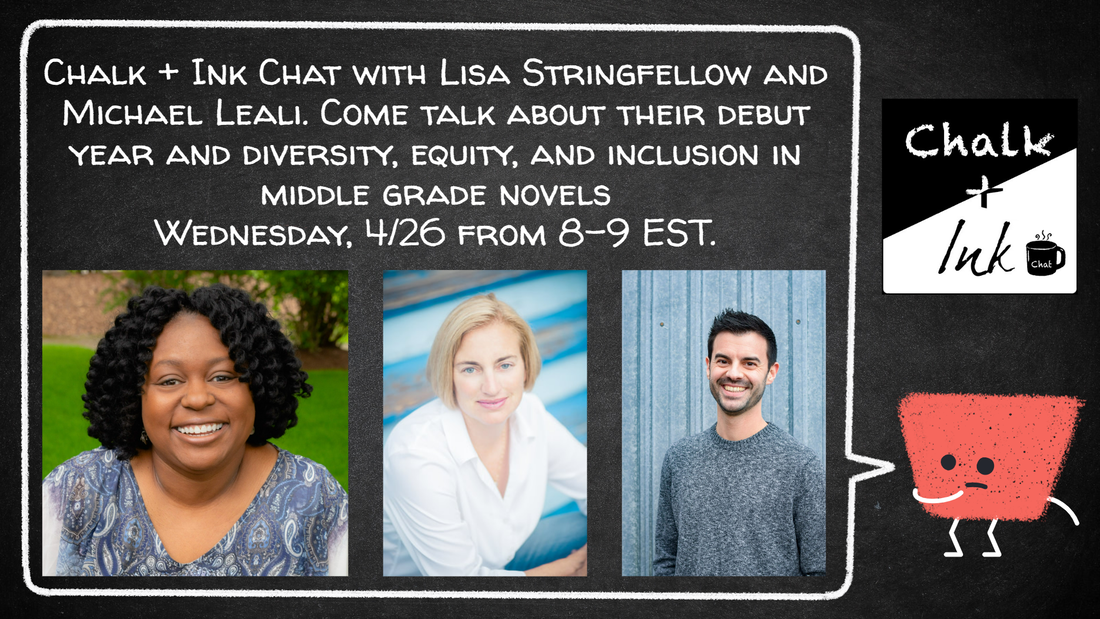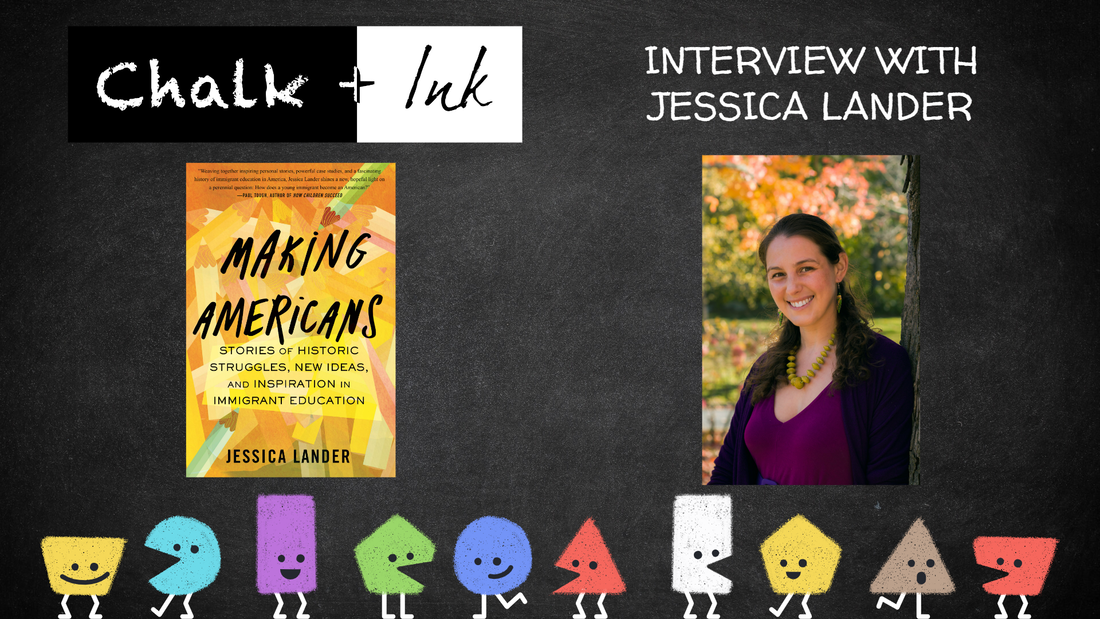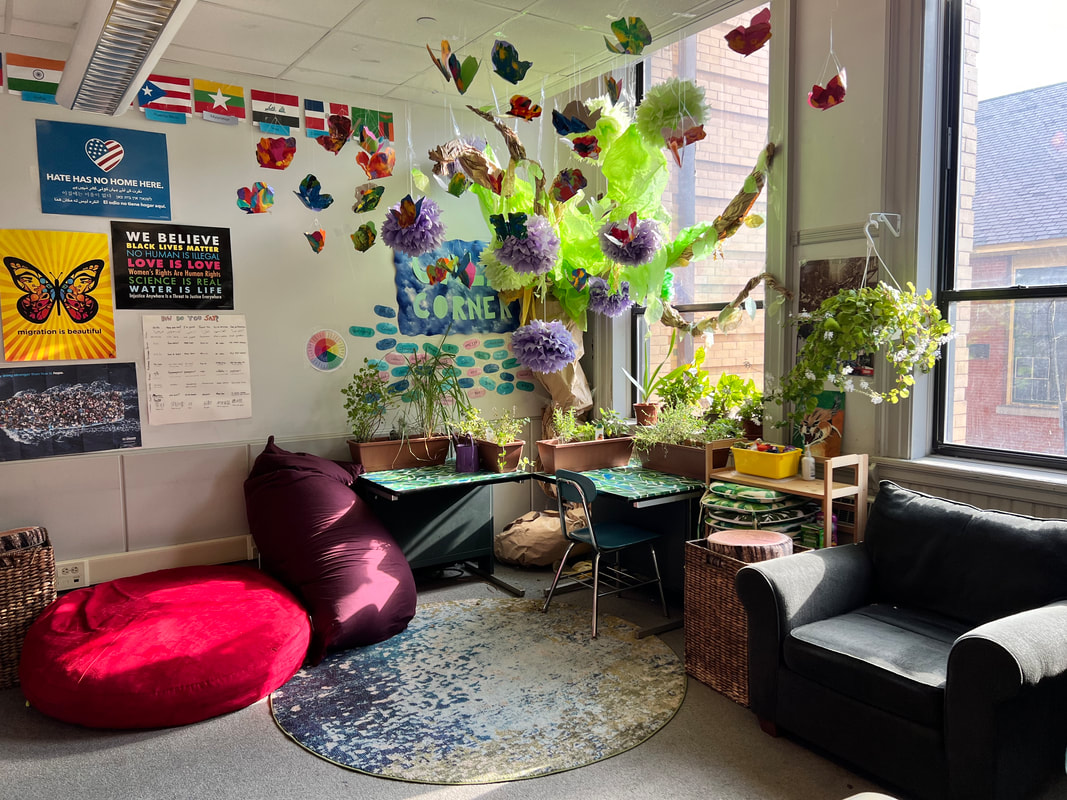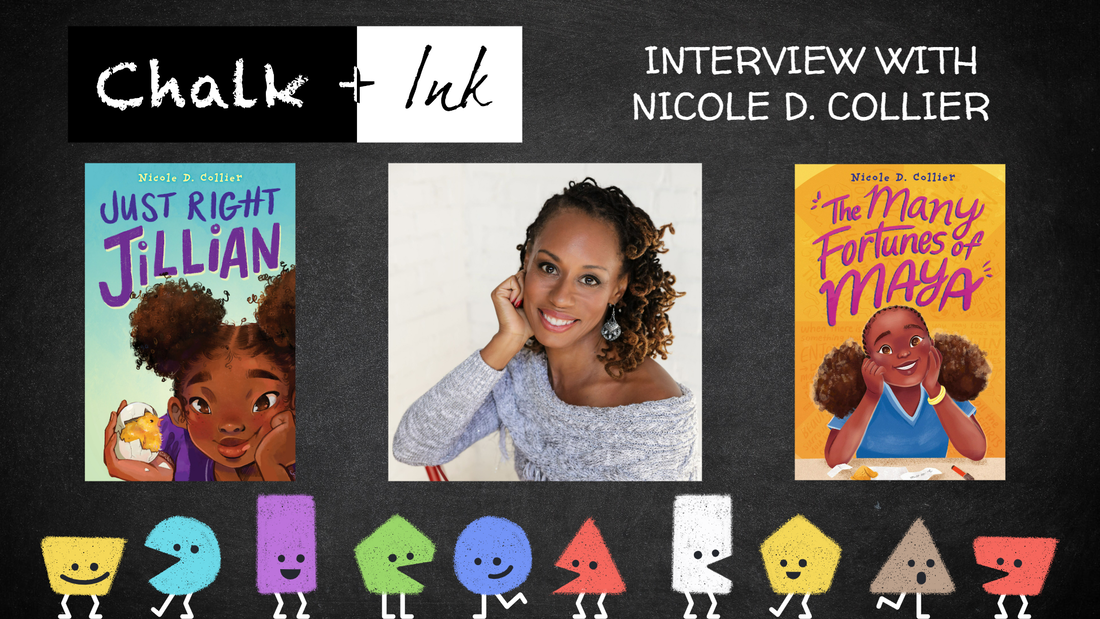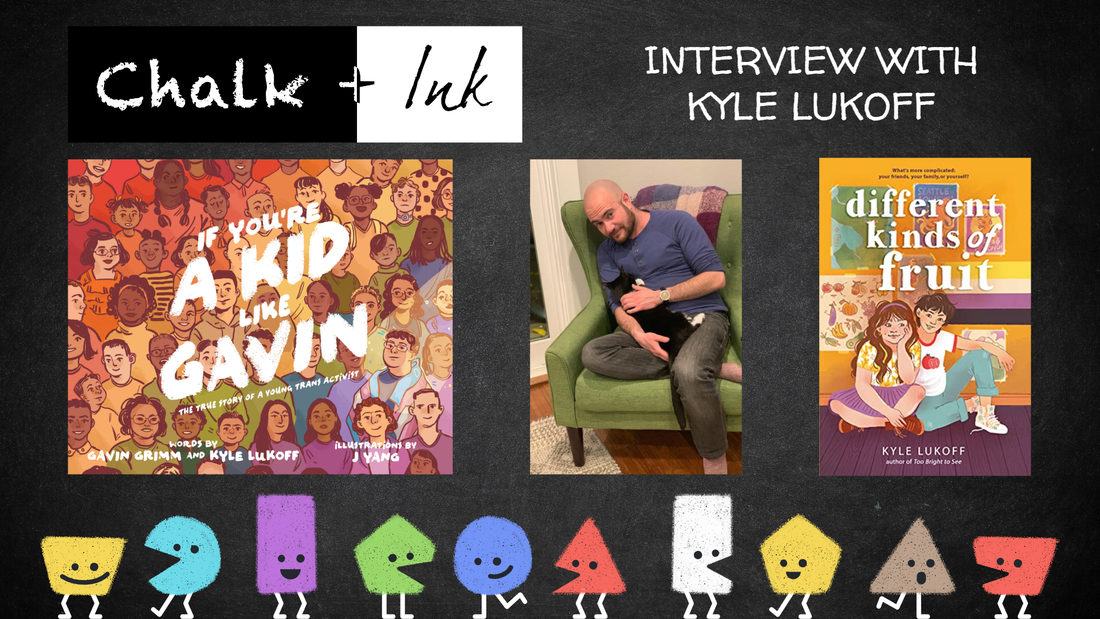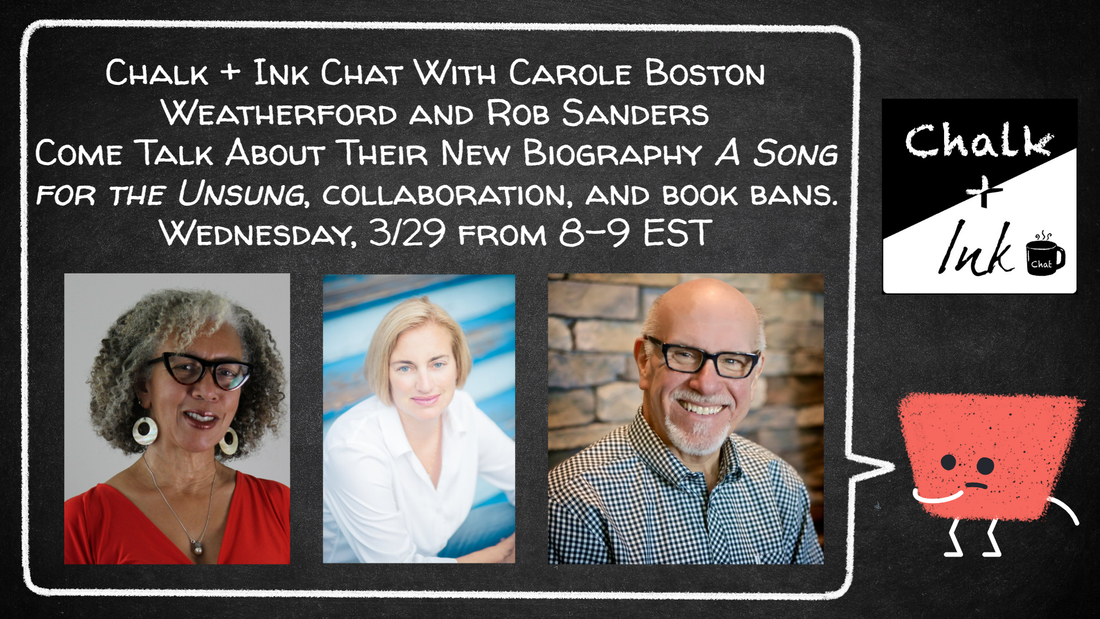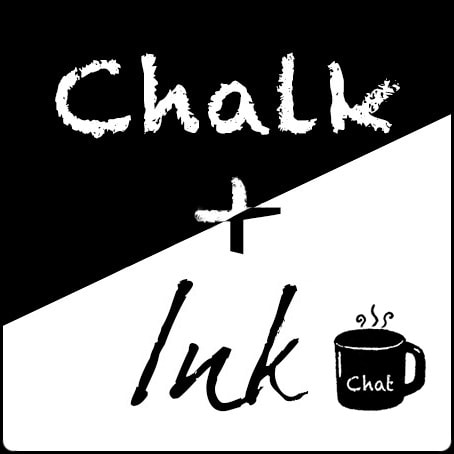|
Stacy Mozer dives deep into ways to enrich your writers' workshop, why it's important to develop a relationship with your local librarian, and how reading is a writing and a teaching superpower. My mind is 100% on school right now. I'm thinking about how I can make this school year better than last year, and one way to do that is by facilitating a better writers' workshop. Stacy gives listeners a ton of tips in this episode including offering students a smorgasbord of planners, how to help students develop multiple leads or hooks or attention grabbers, and how to help individual students revise in whole group settings-wow! Listening to Stacy was just what I needed to get me jazzed up for writing with my students. Many podcast guests have talked about how getting to know their local librarian helped them research their books, but Stacy's librarian story is different. Her local librarian taught her about children's publishing. Granted, not everyone's local librarian is a member of the Sibert Committee or the Caldecott Committee. Nevertheless, the point is librarians have knowledge, and they're more than happy to share it. So, be sure to ask them for help. Superpowers! We all have them. One of Stacy's superpowers is reading quickly, which helps her in the classroom and when she's writing. During readers' workshop, Stacy rapidly reads a chapter of a student's book before conferencing with them, unless of course she's already read the book! For writing, Stacy's reading superpower helps her know just which mentor text to turn to, when she wants to create a craft move in her own work. Here are Stacy's book recommendations for the upper elementary classroom: The One and Only Ruby by Katherine Applegate Stacy says this is a book that lives in her heart and that it's a fabulous story about friendship. The Last Mapmaker by Christina Soontornvat This is a 2023 Newbery Honor book. So, obviously Stacy isn't the only one who thinks it's a wonderful read. I agree 100% with Stacy. This book is set in a fantasy world, where family heritage determines one success. But even though the main character has no family legacy, she's an incredible artist who gets to participate in a high sea adventure full of friends, foes, and fantastic beasts. The Last Beekeeper by Julie Carrick Dalton In this dystopia, all the honeybees are presumed extinct. But when the main character sees a honeybee on her family's abandoned farm, she knows it's important. Meanwhile, there's a company trying to control all the world's technology that produces the world's food supply. I haven't read it yet. But, it's definitely on my tbr list now! Get a Grip, Vivy Cohen by Sarah Kapit This book is about a little girl who loves baseball and who also has autism. She learns how to throw a knuckleball and becomes a successful little league pitcher. This is an epistolary novel told in letters written by Vivy and a local major league star. This book pairs well with Stacy's middle grade novel, The Sweet Spot, which is also about a female little league star. The Secret of the Dragon Gems by Rajani LaRocca and Chris Baron Full disclosure-I love anything written by Rajani and Chris. Last season I interviewed Chris. Click here to listen to his episode. This novel is told from two points of view. Two campers become friends at a summer camp where they find some rocks, which they feel connected to. They take the rocks home and communicate through email, texts, and letters. Meanwhile, the owners of the camp are looking for these rocks, too. I haven't read this one yet, but my classroom has a dragon theme this year. So, this seems like it would be a perfect read aloud. Don't Want to be Your Monster by Deke Moulton This is one of the most interesting novels Stacy has read because it's a vampire novel for middle grade students. This novel debunks the way we see one another, and why we're scared of people who are different than ourselves. It also addresses anti-Semitism. I haven't read this one either, but it sounds fascinating. If you would like to be eligible to win a 30-minute virtual classroom visit with Stacy, write a comment below by Friday, September 1st. The winner will be announced on the next episode. Before our next episode, be sure to read one of H.M. Bouwman’s fantastic middle grade novels. Gossamer Summer just came out this past May. In addition to being truly delightful, it’s less than 200 pages. It’s a quick, fun read jam-packed with magic. Happy listening!
0 Comments
Chris Baron, talks about how writing starts with you, reaching unseen readers, and the magic of maps. It's funny how someone can rephrase an idea and it revolutionizes the concept. So many people say, "Write what you know," but Chris Baron says, "It starts with you." The difference is the immediacy of the statement. Starting with me begins inside the heart, while writing what I know starts with the mind, and those are two very different starting points. Chris talks about how even though he had an elementary teacher who told him, "It starts with you," he had a professor in college who hit him over the head with a rowing oar, not literally but figuratively, with the same concept. Ever since then, his writing has come from his heart When writers start from the heart, they reach unseen readers--readers who haven't seen their struggles revealed on the page. Whether it's through Ari's self-hatred, Etan's inability to trust, or Sasha's anxiety as he tries to navigate his father's toxic masculinity, readers will find themselves and their fears inside Chris's novels. The magic of maps threads itself all three of Chris's novels, too, but it's front and center in The Gray. Preorder your personalized copy here so that you, too, can feel like a character in a video game navigating through unfamiliar landscape to rescue a friend. Chris recommends the following authors and these books: Read all of Rajani LaRocca's and Mae Respicio's books. Check out Reem Faruqi's Golden Girl, Shari Green's Missing Mike, Remy Lai's Pie in the Sky, Jess Redman's The Adventure Is Now, Nikki Grime's Garvey's Choice, and Gillian McDunn's, When Sea Becomes Sky. There are so many names here that are new to me, but I know where I'm starting. People are tweeting morning and night about When Sea Becomes Sky. So that's the one I'll be checking out. If you would like to be eligible to win a signed copy of one of Chris's novels or a ten-page middle grade novel critique, be sure to leave a comment below. Finally, many thanks to Sarah Brannen for Chalk + Ink's art. Just like Chris's novels are great summer reads, so is Sarah and Melissa Stewart's Summertime Sleepers. Be sure to add it to your summer stack. Happy listening! Hanh Bui highlights the helpers who welcomed her and her family to the United States in the 1970s, surrounds herself with positive people, and stays true to her story. During the pandemic when Hanh heard about immigrant children being separated from their parents at the Mexican border, she knew she had to share her immigration story with the world. She wanted to tell stories about all the helpers who eased her and her family's transition to the United States: soldiers, social workers, teachers, church workers, as well as organizations such as the YMCA, the Salvation Army and the Red Cross. In order to tell her story, she knew she would have to surround herself with positive people. She engaged with her local writing community by attending book launches at independent bookstores. The first author event she attended featured Mary Rand Hess. Mary became her first writer friend and mentor. From there, Hanh joined SCBWI, engaged with Highlights, attended Pat Cumming's Picture Book Boot Camp, and participated in Vivian Kirkfield's 50 Precious Words Contest. Hanh is so grateful to all of these people and organizations for helping her along the way. Some people wanted Hanh to change certain aspects of her story. For example, some people wanted the mother in Hanh's debut book, The Yellow Áo Dài, to be angry. But that was not the experience Hanh wanted to portray. The fact that Hanh portrayed a kind and empathetic Asian mother, instead of the hurtful, stereotypical Asian tiger mom, attracted illustrator Minnie Phan to Hanh's story. Hanh stayed so true to kindness and empathy, that I felt loved as a reader. Hanh recommends people have the following picture books in their elementary classrooms: The Power of Yet by Maryann Cocca-Leffler This book features a pig who practices patience and perseverance. With those two qualities, anything is possible. The Kindest Red by S.K. Ali and Hatem Aly This book shows children that they can be resilient and have courage especially when they surround themselves with positive people. Hanh also recommends teachers have classics on hand such as Arnold Lobel's Frog and Toad, as well as books by Sandra Boynton and Mo Willems. If you would like to win a copy of Hanh's book please leave a comment below. To prep for our next episode, be sure to read one or both of Chris Baron's middle grade novels, All of Me or The Magical Imperfect. As always, many thanks to Sarah Brannen for Chalk + Ink's banner and logo. Summer is just around the corner. Be sure to pick up a copy of Summertime Sleepers, written by Melissa Stewart and illustrated by Sarah, and start daydreaming about summertime naps. Happy listening! Chalk + Ink: Episode 57; Trusting the Process With Mary Ann Cappiello and Erika Thulin Dawes4/15/2023 Mary Ann Cappiello and Erika Thulin Dawes talk about trusting the process, text sets, and the magic of working on multiple projects. Often times we think our process isn't valid. This could be because it doesn't look like someone else's or because it doesn't look like we think it should look or because we haven't reached the goals we hoped to obtain. But Mary Ann and Erika talk about how important it is to trust the process, whatever that looks like for each writer, whether the two of them are collaborating on a new book, writing on their own, or coaching their students as they craft their own work. What does it mean when we talk about a text set? Many people may think we're talking about various books. And while books are definitely part of a text set, they're not the whole picture. When Mary Ann and Erika talk and write about Text Sets in Action, they're talking about multi-modal, multi-genre text sets. To help teachers understand the various ways text sets may be utilized in the classroom, they have developed various visual models such as the solar system model or the tree ring model. My favorite is the tree ring model because it centers the main text and examines the sources the author used to create the text. In addition to thinking our process isn't valid, sometimes we superimpose rules on ourselves that limit our creativity such as I should only work on one project at a time or I'm too busy to balance another project right now. But both Mary Ann and Erika feel when they work on multiple projects at once that not only are they more productive, they are also able to uncover solutions that would have remained buried if they were only working on a single project. For elementary classrooms, Mary Ann and Erika Thulin Dawes recommend the following books: Whale Fall by Melissa Stewart and Rob Dunlavey Mary Ann talks about how a teacher, a former student of hers, raves about Whale Fall and the powerful impact on her elementary students. I just read Whale Fall in my class, and my students loved it, too. I loved watching them point and hearing them ooh and ah at each new sea creature they learned about as they feasted on the whale fall. Berry Song by Michaela Goade Erika loves books that celebrate our natural world. Not only does Berry Song invite readers to interact with nature, the text offers multiple opportunities to discuss social and environmental justice. Ablaze with Color by Jeanne Walker Harvey and Loveis Wise This book has been bringing Erika joy. She's been using it in one of her students' preschool classrooms and the preschoolers love it. On Mary Ann and Erika's website, Teaching with Trade Books, they have a ton of curated recommendation lists. If you would like to win a copy of Text Sets in Action or a thirty-minute coaching session on how to use text sets in the classroom, leave a comment below. Remember to sign up for our next Chalk + Ink Chat on April 26th with Lisa Stringfellow and Michael Leali to talk about their debut year and DEI in middle grade novels. On the next episode, I'm looking forward to discussing Hanh Bui’s debut picture book, The Yellow Áo Dài. Many thanks to Sarah Brannen for Chalk + Ink’s podcast art. Congrats to Sarah on her latest book sale. I’ll echo another critique group member and say I can’t wait to see Lolly on the ice and on bookshelves. Happy listening! Jessica Lander celebrates students' strengths, talks about using text structure to synthesize research, and self care. As educators, we know students need to find mirrors in books. But, let's face it. Many students, especially immigrant students, never find those mirrors. As a result, they don't read. Jessica Lander has a simple solution for that all-too-common classroom challenge. All of her students write their migration stories, which Jessica edits and publishes as books. Check out her We Are America site, if this is a project you'd like to implement in your high school. Publishing her students' work is one of many ways Jessica celebrates her students' strengths. Need to get unstuck? Take a walk. That's what Jessica did and as she was walking, she figured out the text structure for her amazing book, Making Americans. She had done a ton of historical research, visited multiple schools, and did hundreds of hours of interviews, which she had cobbled together in a way that muddled her message and confused her first readers. But as she walked, the structure of the book: the past, the present, and the personal emerged. The rest is history. Finally, Jessica talks about self care. Whether it's taking a walk, visiting with friends, or even something simple like treating herself to a cup of tea while she writes. In order for her students to have self care opportunities during the school day, she's created a welcoming space in her classroom complete with a herbal garden, a paper tree, and hanging butterflies. Whatever self care looks like for each person, it's something we all need more of in our lives. For a list of over 200 carefully curated social justice titles for high school classroom collections, please contact Jessica. In the meantime, if you're looking for two titles that will most likely have mirrors for your immigrant, high school students, check out We Are America and We Are America Too, written by Jessica's students. If you would like to be entered to win a copy of Making Americans, please leave a comment below. As always, many thanks to Sarah Brannen for Chalk + Ink's logo and banner. Happy listening! Nicole D. Collier talks about facing fears, asking tough questions about whether or not we’re betraying ourselves and gives listeners tips to create courage. It took decades for Nicole to face her fear and begin writing. But she did even though she didn't know how to begin or what to write. She began just in time to craft her debut Just Right Jillian. Just like Nicole, Jillian has to overcome her fear of being seen in order to pursue her dream of participating in her school's Mind Bender challenge. In her second novel, The Many Fortunes of Maya, Nicole asks readers to consider a tough question. When we have a choice, how do we stay true to ourselves and choose what we want instead of choosing what someone else wants because we want to please others? Nicole recommends listeners take the following actions to create the courage they need to chase after their dreams: 1) Read affirmations. 2) Listen to courageous music. 3) Wear courageous clothes. Nicole recommends the following middle grade novels: Hannah Hsu and the Ghost Crab Nation by Sylvia Liu Kids are connected to the internet through their brains. Say no more! I have to grab a copy of this book, curl up on the couch, and crack it open. Dan Unmasked by Chris Negron This book speaks to boys' social emotional health. Not an Easy Win by Chrystal D. Giles Giles tackles tough topics in this novel that features a multigenerational household and an incarcerated parent. I haven't read this story, but I love her other book, Take Back the Block. The Tryout by Christina D. Soontornvat Double Newbery Honor winning author, Christina Soontornvat's, graphic memoir about growing up in Texas. I own a copy of this book, but I've never read it. The title keeps getting passed from student-to-student. Looks like it will be a summer read. If you would like to win a copy of one of Nicole's delightful novels, leave a comment below. Or share this episode on social media, and be sure to tag Nicole and me. Remember to sign up for our next Chalk + Ink Chat featuring Carole Boston Weatherford and Rob Sanders on March 29th from 8-9 PM EST. We'll be talking about biographies, collaboration, book bans and more. Many thanks to Sarah Brannen for Chalk + Ink’s podcast art. Congrats to Sarah on her latest book sale. I’ll echo another critique group member and say I can’t wait to see Lolly on the ice and on bookshelves. Happy listening! Kyle Lukoff talks about puzzling out books, gives tips to librarians to protect their patrons’ right to choose their own books and compares picture books to formalist poems. It turns out that Kyle thinks writing a novel is a lot like putting together a jigsaw puzzle and so do I. He talks about how his third novel he wasn't sure how three different story elements were going to hang together, but in the end they all fit perfectly with one another, which felt like magic. His third novel isn't out yet. In the meantime, read his Newbery Honor book Too Bright To See or his latest novel Different Kinds of Fruit. For eight years, Kyle worked as a school librarian. When I read his ALA Office of Intellectual Freedom Award speech, I wanted to delve into protecting patron's rights on the podcast. He took the following actions to protect his students' right to choose their own books: 1) Invited parents and guardians to check out up to four books they could share with their kids at home to validate the adult's right to choose and participate in their child's reading life. 2) When a caregiver complained to Kyle that the book their child chose was too difficult, Kyle asked the adult to read the book at home for 15 minutes with the child. Then, ask if the child enjoyed the book. If the answer was yes, great. If the answer was no, then ask the child if they would like to return the book and pick a different title. That way the child had agency instead of the adult choosing for them. 3) Kyle told teachers that if caregivers had a problem with something in the library, that the caregiver had to reach out to him directly. For the first time ever on the podcast, we talked about how "picture books are more aligned with formalist poetry than any other kind of writing." Kyle gives a lesson on picture book structure using Where the Wild Things Are by Maurice Sendak and he also talks about the structure in Big Cat, Little Cat by Elisha Cooper and Big Mean Mike by Michelle Knudsen. I talked about Kyle's book Explosion at the Poem Factory, which in addition to being a super-fun story is also a poetry primer. Kyle recommends that elementary libraries have the following books on hand: The Rabbit Listened by Cori Doerrfeld Sounds like Kyle loves this book as much as I do. He wrote a forthcoming picture book called Just What to Do, which is a response to Cori's book about how often what we need when we're upset is not to do anything, but to have someone who will listen to us talk it through. We Are Grateful: Otsaliheliga by Traci Sorrell Traci was in my debut group, and I love her work. In addition to We Are Grateful which talks about gratitude year round, Kyle said he loves At the Mountain's Base. As a fourth grade teacher, I highly recommend We Are Still Here!: Native American Truths Everyone Should Know because it dispels the myth that Native Americans no longer exist and highlights the power of education. I Am Every Good Thing by Derrick Barnes It's impossible not to feel joy when reading this book. Finally, Kyle recommends any book written or illustrated by Yuyi Morales to brighten up any library space. If you would like to win one of Kyle's amazing books, leave a comment below. As always, many thanks to Sarah Brannen for Chalk + Ink's podcast art. |
Chalk + Ink ChatsWant to hang out with teachers who write and writers who teach? Fill this form to join our Archives
October 2023
Categories |
